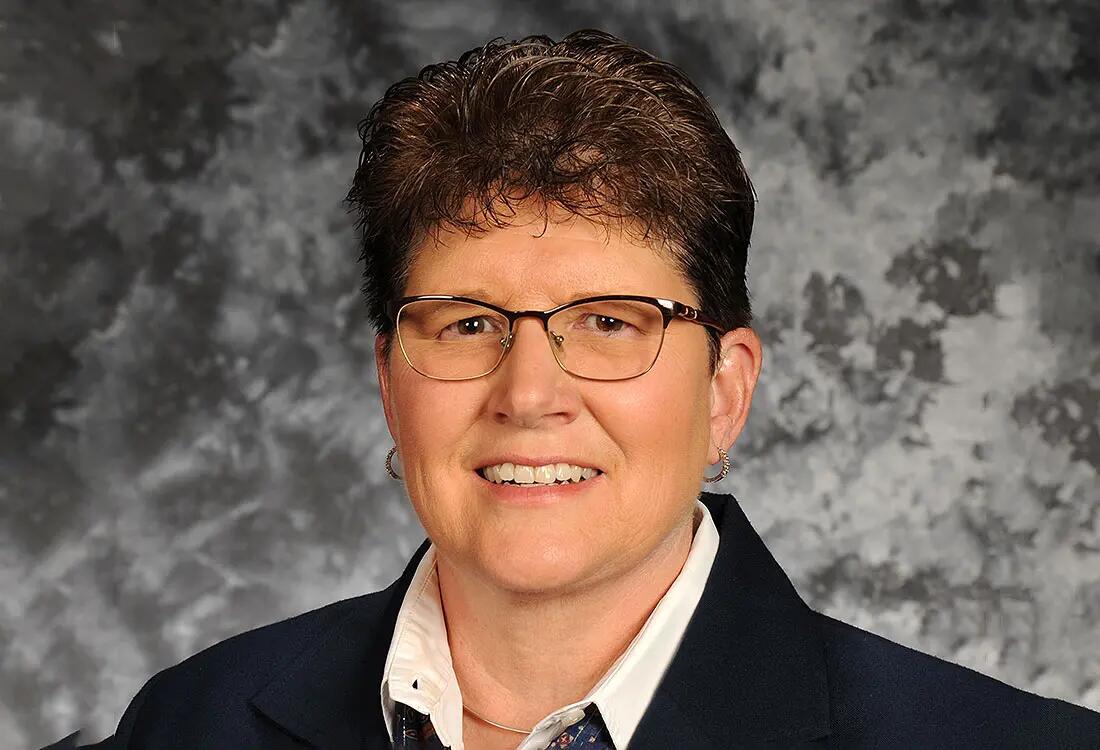
Program Completed:
- Leading and Managing a Multi-Generational Workforce

Alumni Spotlight: Connie Flohr
Connie Flohr works for the Department of Energy, Office of Environmental Management (EM), which is charged with cleaning up nuclear waste sites across the United States. Within EM, she is the Manager of the Idaho Cleanup Project, where her teams work at site facilities located just outside Idaho Falls, ID. Prior to this position, Connie was the Budget Director and Deputy Assistant Secretary for Resource Management in EM.
How has your learning been applicable in your current role?
After completing the program myself, I brought this course to a group of my colleagues as a training and development opportunity, and we have absolutely changed the way we do business. We’ve taken some of our younger employees that we think show serious promise and are making sure that we give them specific assignments, which gives them a sense of ownership of their work. I am also personally working toward devoting one-on-one time for these assignments with them. This includes making sure I give clear direction and guidance and touch base early on regarding their progress. So far it’s been really effective, and the rest of my management team have been taking a similar approach.
How has the program helped you be more effective in your professional life on a day-to-day basis?
My whole team now has the same fundamental understanding that we established during the course, and I think what’s benefiting us the most is that the actions that all of us are taking are relatively similar. My team members are hearing consistent messages with consistent application, no matter whom it is they talk to across our management team or whom they happen to work for in our organization. Having that commonality across the office brings stability, and as I like to say, we’re all getting better together.
What motivated you to pursue this program?
My workforce composition continually evolves as workers retire or transition to other positions and we bring new members onto the team. Consequently, like all managers, I am faced with the ongoing challenge of connecting with new individuals while ensuring they understand my expectations relative to work products and office culture. As the age of my team spans from the mid-20’s to late 50’s, I thought this course could give me some insight as to how different generations are motivated to service and how their style may differ from mine.
What was your biggest personal or professional gain from taking this program?
Honestly, for me it was that I came away thinking I’m not as biased as I thought I was. When I was in the class, I had this a-ha moment that a lot of these differences that I recognized weren’t really challenges related to generational differences, but simply human differences. We’re all from different geographies with different heritages and customs, and all of those differences need to be considered and addressed to make sure we have clear and open communication with each other.
How were you able to use this program to reinvent yourself?
Reinventing myself meant realizing that my current way of doing something wasn’t as effective as it used to be, and that I needed to make some adjustments to my style, my approach, or my perspective in any given situation in order to improve things. That can be a tough thing to acknowledge and face, especially since as the older we get, we can get more rooted in certain ways. However, I knew I was not going to be as effective going forward as I had been in the previous thirty years if I didn’t figure out how to bring on our younger staff and make sure that they would feel as dedicated to government service as I do. I had this realization before the course, which is why I knew I needed to take the time to invest in myself by enrolling, so that I could reinvent myself in order to move forward effectively.
What does the term “lifelong learning” mean to you?
It means always being open-minded enough to embrace new ideas and new concepts. It’s not being afraid to admit that you just had a revelation and learned from somebody that’s one third your age or even more junior. As a result, I now make a concerted effort to have a takeaway from every single engagement I have with other people, whether I learn something about myself or I’m learning something from them. As part of my application of this course, I talked with my team members about the course, so the younger members knew I wanted to grow, and I asked them for their help.
In looking back on your program experiences, what stands out to you?
The exercises were very enlightening and well thought out. I also liked the breakout sessions with the constant mix and exchange of people. I think that the engagements were very open and candid, and there was a good information exchange. It was especially helpful to hear others’ perspectives on things. Honestly, the whole structure of the class was great. It was very digestible and practical. I liked everything about it. My management team and I mention aspects of the course often, which I find very rewarding.
What advice would you give to fellow professionals or colleagues that might not have considered this type of program?
This was a valuable course and I believe it is truly executive level. I walked away emphatically knowing that I learned things from the other participants, but I also had equal confidence that they walked away having taken something from me, too. I left the course telling my management team, most of whom are my age, that I thought it would benefit all of them, and we did subsequently deliver this program for all of them accordingly. In parallel, and equally important, I think younger team members also need to have an awareness, just as we do, of how they themselves think and work, and how it might be different than how their older colleagues or managers operate. Offering this training across all generations would probably be a good opportunity for some of these individuals.


